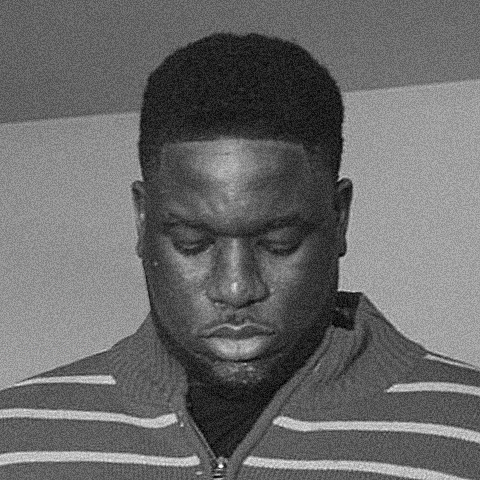DEL: Kofi Oduro
“Back in the day, you found an artist randomly, watching MuchMusic, or MTV, or on the radio. Since we’re not engaging with these formats, and everything is curated for us, it’s hard for some artists to get discoverability.”
DEL resident Kofi Oduro’s artistic practice is an observation of the world around us, which he then inserts into artwork for others to relate to or disagree with. Through videography, poetry and creative coding, he tries to highlight the realms of human performance and the human mind in different scenarios. These situations can be described as social, internal, or even biological, which we face in our everyday lives.
Q: Please tell us about your collaboration with SWINTAK, what kind of ideas and forces is it drawing on?
A: We’ve dubbed it the anti-Airbnb experience, the anti-Uber experience. Because whenever you do Uber or Airbnb—unlike a hotel or a taxi—you never have to deal with randomness. Because randomness is not promoted on these things. But as we know, as the world is getting more and more digital, we are losing the random touch. What does this have to do with art? Well, back in the day, you found an artist randomly, watching MuchMusic, or MTV, or on the Radio. Since we’re not engaging with these formats, and everything is curated for us, it’s hard for some artists to get discoverability.
But the old system was not beneficial for all artists because you had to get on certain platforms. So one of our ideas is to build a [digital] experience where artists are able to get discovered and give gallery owners, curators, academics, people that engage with the arts often, a chance to explore new concepts—and do it in a way that the artists can get paid.
Q: Amazon, Airbnb, Spotify—how do you take the recommendation paradigm from web services and make it applicable to and beneficial for artists?
A: We’re trying to make it fun. You could get what you want, you might not. You go on Spotify—“we heard you listened to these ten tracks, so we think you’re going to like these ten tracks.” We’re trying to play around with the notion that we’re not trying to overly curate. Just because you want a certain experience, we might give it to you, or you might end up talking with someone else.
When SWINTAK and I kept talking, we’re like, randomness is very important for art, those random walks and all that. And that’s the one thing that, the more you go online, the less random it is. If you’re on YouTube, it will recommend a song it thinks you’ll like. Sometimes it’s good. I really am a big fan of that explore page, where it’s just a random assortment of things they think you’ll like. But I’ve also fought it. It happened recently, where someone was like, “Yo, I don’t really want to play this song on my account because now YouTube is going to recommend me different stuff.” So I also wanted to play with that experience where, just because you signed up for something, you might not get it. And Is that really a bad thing?
“[I] wanted to play with that experience where, just because you signed up for something, you might not get it. And is that really a bad thing?”
Q: How exactly will you inject randomness into this process?
A: At one point, maybe near the end [of the sign-up process], when you usually have to agree, you have a warning sign: “BE AWARE… you’re only given a 35% chance of getting the experience you want, but you will get an experience”—a curve ball to make that an experience in itself.
DEL
Digital Economies ReaderExplore more of "DEL:"
→ HOLO.mg/stream/
→ HOLO.mg/digital-economies-reader/
